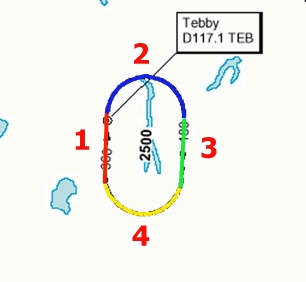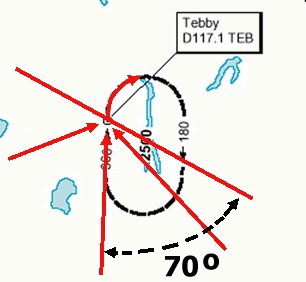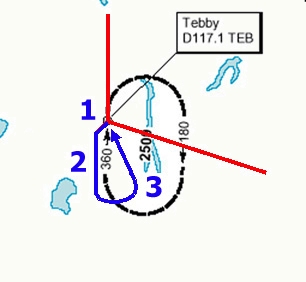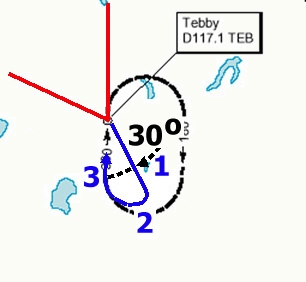Holding Patterns¶
A holding pattern are normally to be demanded by ATC because of for instance
delays at arrival airport.
ATC will give you necessary instructions how to fly to the holding pattern. It
can be included in your route or you will be guided via vectors to fly to a
specific VOR/NDB/FIX and make a holding. The most difficult with a holding is
the entry, because of the 3 different ways to join the holding.
A holding normally is drawn on the STAR/SID/IAL charts with a designated
inbound heading to the waypoint where the holding will be performed.
A typical map including a holding looks like below:

Holding restrictions
| Time of each leg | Max speed | |
| Below FL140 | 1.0 minute | 230 kts |
| FL 140 - 200 | 1.5 minute | 240 kts |
| Above FL200 | 1.5 minute | 265 kts |

Depending on how you are approaching the holding pattern you will entry the pattern in 3 different ways.
- Direct entry
- Paralell entry
-
Offset entry
Procedure for direct entry is to fly direct to the holding point and join the holding pattern

Paralell Entry
Parallel entry is when approaching the holding from upper right sector.
-
Fly direct to the holding point and cross it.
-
Turn to fly parallel to the inbound leg
-
After appropriate time turn left direct holding point.

Offset Entry
Offset entry is used when approaching the holding on the upper left sector.
-
After crossing the HP turn 30 degrees and fly outbound the HP
-
After appropriate time turn right to intercept HP
-
Join the holding pattern
